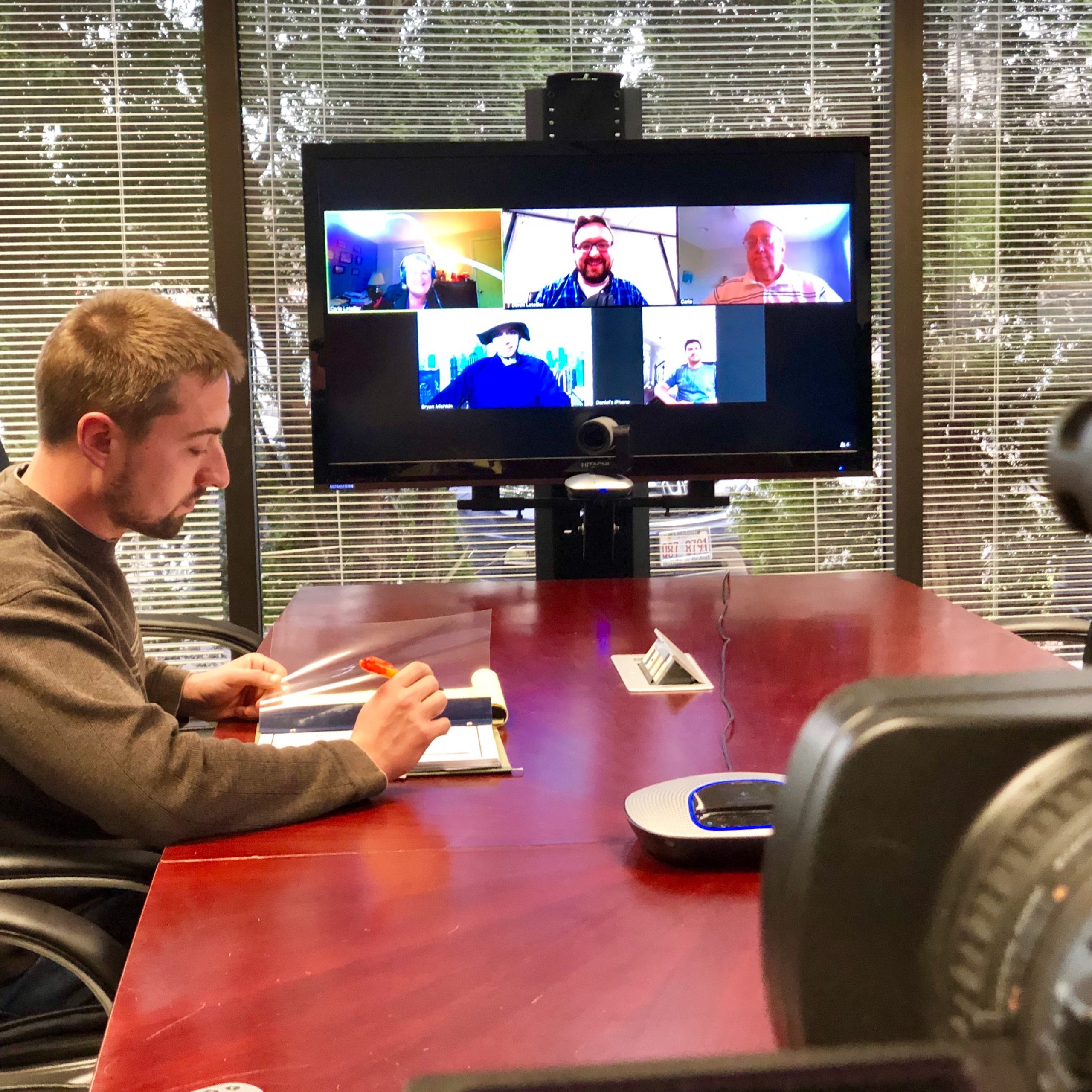Making The Most Of Performance and Protection in Lawful Procedures Through Remote Depositions Innovation
In the quickly advancing landscape of legal process, the integration of remote depositions technology has emerged as a critical device for making best use of performance and safety and security. As lawyers navigate the complexities of modern techniques, the utilization of digital systems provides a wide variety of advantages that streamline procedures and support privacy. By diving into the nuances of enhancing performance and securing delicate info with remote deposition services, a brand-new realm of opportunities unravels for the legal market.
The Advantages of Remote Depositions
Maximizing efficiency and protection in lawful process can be considerably improved through the use of remote depositions. Remote depositions supply various advantages that can improve the deposition process and improve total case management. REMOTE DEPOSITIONS. One crucial advantage of remote depositions is the capability to depose witnesses from any area, getting rid of the demand for travel and fitting active schedules. This not just saves time and sources yet additionally guarantees that the deposition can proceed smoothly with no logistical barriers.
Moreover, remote depositions advertise enhanced safety and security actions compared to conventional in-person depositions. With safe and secure on the internet platforms and security innovations, sensitive info shared during depositions is protected against potential violations. This enhanced degree of protection supplies satisfaction to all events involved in the legal procedures, shielding the discretion and stability of the deposition process.
Enhancing Performance Via Digital Platforms

Additionally, digital platforms allow the recording and playback of depositions, offering an important source for review and evaluation. Lawyers can revisit turning points, analyze witness testaments, and strategize effectively. Additionally, virtual platforms enhance security by providing security methods and gain access to controls to secure delicate details shared throughout depositions. In general, by leveraging virtual systems, lawyers can streamline operations, boost interaction, and ultimately enhance the performance of legal process.
Ensuring Safety in Legal Processes

In enhancement to technical safeguards, it is vital to establish clear protocols for accessibility control and verification. Only licensed employees ought to be approved access to delicate details, and multi-factor authentication can add an added layer of security. Implementing stringent information defense policies and making certain conformity with relevant policies such as GDPR or HIPAA is essential here are the findings for keeping the safety of lawful procedures.
Routine protection audits and training sessions for all celebrations involved can better strengthen the defense of secret information. By focusing on safety and security steps and staying vigilant against potential dangers, lawyers can promote the trust and stability of the legal procedures performed via remote deposition technology.
Taking Full Advantage Of Efficiency With Remote Innovation
To boost operational efficiency and collaboration in lawful procedures, integrating remote technology why not check here options can simplify processes and optimize productivity. Remote innovation enables lawyers to perform depositions, conferences, and hearings from any kind of area, eliminating the demand for traveling and conserving useful time. By leveraging video conferencing tools and secure platforms, legal representatives can efficiently interact with clients, witnesses, and coworkers in real-time, boosting partnership and decision-making. In addition, remote innovation uses the flexibility to schedule proceedings at practical times for all parties entailed, reducing organizing disputes and delays.
Additionally, remote technology allows for the seamless sharing and retrieval of papers read review and proof, facilitating a much more well organized and structured technique to lawful process. With the ability to access files securely from anywhere, lawful teams can work with instances concurrently, boosting productivity and speeding up the litigation process. Generally, optimizing performance with remote technology in lawful process not just saves time and resources but likewise enhances the quality and effectiveness of lawful services given.
Remote Depositions: A Protected Remedy
Incorporating remote deposition innovation gives a safe and secure and effective approach for conducting lawful proceedings. By leveraging encrypted video clip conferencing devices and secure on the internet systems, remote depositions offer robust safety actions to shield delicate information shared during the legal process. These technologies commonly include attributes such as password protection, encryption of data in transportation and at rest, multi-factor verification, and restricted accessibility controls, ensuring that just authorized events can take part and access the procedures.
Moreover, remote depositions decrease the dangers connected with physical file handling, storage space, and transport, which can be prone to violations or loss. With virtual exhibits and electronic transcripts, the likelihood of unauthorized gain access to or tampering with evidence is significantly lessened. Furthermore, remote deposition services enable real-time tracking by designated moderators or hosts to supervise the session and attend to any safety and security problems promptly.
Conclusion
Finally, remote depositions technology uses numerous advantages for legal proceedings. By making use of virtual platforms, effectiveness is improved, and security measures are guaranteed throughout the process. This cutting-edge remedy makes the most of efficiency and streamlines the deposition process, inevitably leading to a much more reliable and secure legal atmosphere.